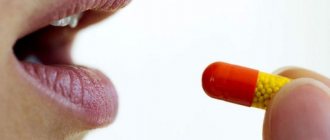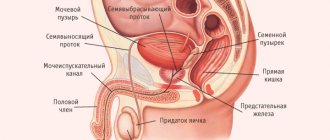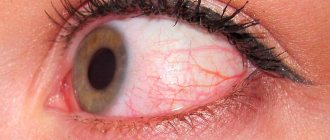One of the most unpleasant experiences in the life of any woman is when the labia are swollen and painful, especially if the problem is accompanied by discharge and constant itching. Such symptoms, as a rule, become the reason for an urgent visit to the gynecologist, since they significantly reduce the woman’s quality of life and do not allow her to successfully engage in everyday activities.
But what if there is no way to see a doctor, and the problem bothers you and prevents you from living normally? In this article, we will tell you why the genitals become swollen, what additional symptoms you should not hesitate to visit a gynecologist, and also what can be done to alleviate the situation at home.
Wearing poor quality or tight underwear
One of the most common reasons why the labia is swollen and hurts is exposure to low-quality underwear material. The choice of underwear should be taken seriously and carefully: if it is too tight, it will begin to rub, and then the pain will be caused by mechanical damage to sensitive areas. If the underwear is made from cheap material, it can provoke an allergic reaction, which will also manifest itself in symptoms such as pain and itching.
© shutterstock
It is also worth paying attention to the seams that connect the parts of underwear: too rough a seam can also damage the skin and lead to discomfort.
Features of symptoms
Pain, itching and irritation in the labia area that appears after wearing certain underwear. Most often, symptoms are especially severe in the evening, after a long active day.
Treatment methods
To avoid this problem, you should change your underwear to better quality ones. Pay attention not only to the design, but also to the materials from which the item is made. To relieve pain and irritation, you can also use healing and anti-inflammatory ointments.
Premenstrual syndrome
Another reason why the labia is sore and swollen is premenstrual syndrome, or PMS. During this natural cyclical period for every woman, which begins to manifest itself a few days before the onset of menstruation, blood flows especially actively to the genitals, which leads to their swelling and pain. And given the fact that during the premenstrual period a woman becomes more sensitive to pain, the symptoms in many cases are experienced quite acutely and painfully.
© shutterstock
Features of symptoms
Pain in the labia and their swelling, accompanied by pain in the lower abdomen, sudden mood swings, and general malaise. With PMS, some women may even experience symptoms such as fever, fever, or chills.
Treatment methods
As a rule, pain due to premenstrual syndrome does not require treatment, as it goes away on its own with the onset of menstruation. But often, if the pain is severe, doctors advise taking painkillers. If painful premenstrual syndrome torments a woman every month, this is a reason to consult a gynecologist. Treatment with hormonal drugs may be required.
When should you see a doctor if your labia are swollen?
If a girl notices symptoms of a tumor of the labia - itching, burning, unpleasant odor and the appearance of lumps, she needs to seek medical help as soon as possible. Self-medication is not recommended, as it is not always effective and can blur the clinical picture of the disease.
Which doctor should I contact?
If a tumor of the labia appears, you need to contact one of the specialists - a gynecologist or dermatovenerologist. If a tumor is felt inside the labia and is not accompanied by other symptoms, it is enough to visit a gynecologist for an initial examination. But if a tumor causes profuse discharge with an unpleasant odor, it is best to visit a dermatovenerologist and get tested for infections.
Pregnancy
Another common reason why the labia hurts is pregnancy. With successful fertilization, blood supply to the genital area improves, blood rushes to them, causing not only their enlargement, but also a change in skin color - they become dark, and bluish veins are often visible.
© shutterstock
Pain in the labia may also occur in later stages of pregnancy, and the discomfort will be caused by the pressure exerted on the genitals by the growing fetus. In this case, even swelling may occur, since the fetus often compresses the arteries, impairing the flow of blood through them.
Features of symptoms
Pain and discoloration of the labia due to delayed menstruation are some of the characteristic signs of pregnancy, which, however, require additional testing using a rapid test or a blood test for the level of the hCG hormone.
In later stages of pregnancy, symptoms in addition to pain will include severe swelling caused by poor circulation in the pelvic organs and reproductive system of the woman.
Treatment methods
As a rule, drug treatment during pregnancy is not recommended, and there is no need for it - the symptoms will stop as soon as the child is born. To relieve pain and swelling in the labia area, gynecologists recommend that pregnant women rest by lying on their side. It is also worth walking or sitting less, as swelling increases in such body positions.
Diagnostics
Regardless of other clinical signs accompanying swelling of the labia, diagnosis begins with a visit to the gynecologist’s office. The specialist will listen to the patient’s complaints and conduct a standard gynecological examination, during which smears will be taken for further tests. Often a diagnosis can be made at this stage, but laboratory diagnostics are required to confirm it:
- general and specific blood and urine tests;
- PCR diagnostics;
- smear examinations: microscopic, bacteriological, detection of sensitivity to antibacterial drugs (antibioticogram).
Among the hardware diagnostic methods, ultrasound scanning is most often used. It is carried out during pregnancy, as well as to assess the condition of the pelvic organs. In some cases, diagnosis may include computed tomography or magnetic resonance imaging, Doppler ultrasound, angioscanning, and even laparoscopy.
Thrush
Another reason that can cause pain in the labia is thrush, which is an insidious disease that can be difficult to get rid of. Another scientific name for the disease is vaginal candidiasis, since the symptoms are provoked by a fungus from the genus Candida. This fungus affects any mucous membrane in the human body, so candidiasis can be localized in other parts of the body, for example, in the oral cavity.
© shutterstock
Vaginal candidiasis occurs for many reasons: a sharp decrease in immunity, lack of attention to personal hygiene, infection through sexual contact, wearing tight synthetic underwear or swimming trunks, frequent use of scented cosmetics (intimate soap, cream, etc.), use of personal hygiene products containing dyes and other chemical additives (colored or flavored pads, tampons, etc.).
Features of symptoms
With candidiasis, pain in the labia area is accompanied by burning and itching, which intensifies during sexual intercourse. In addition, mushy vaginal discharge occurs, which may have a white or yellowish color - it is because of this that vaginal candidiasis is called thrush.
With prolonged exposure to unfavorable factors and the absence of measures to combat the disease, thrush can develop into chronic thrush, which is much more difficult to treat and more dangerous, as it can damage the woman’s reproductive system.
Due to the chronic form of thrush, adhesions may occur in the fallopian tubes, which will cause their obstruction, complicating childbirth or provoking an ectopic pregnancy.
Treatment methods
To treat thrush, you should contact a gynecologist, who, using a smear, will determine that it is fungi from the genus Candida that have caused the unpleasant symptoms, and will prescribe treatment.
You can fight the disease on your own: you can freely find the appropriate pharmaceutical preparations - tablets, ointments, vaginal suppositories. However, they will not help cope with thrush in its chronic form.
In addition to treatment, it is important to follow a diet, since Candida fungi are very sensitive to a woman’s diet. Eliminate sweets and baked goods from your diet. If thrush recurs regularly, you should consult a doctor to find and eliminate the cause that provokes the development of fungi. If this is not done, the disease may become chronic.
Treatment methods
What to do if the labia are swollen. Since self-medication can provoke the formation of dangerous complications, if pathology occurs, you need to consult a doctor who will diagnose and determine the cause, and then tell the patient how to relieve swelling.
Medicines
Medical treatment of edema is based on taking the following medications:
- Antifungal drugs are indicated for swelling that occurs due to the development of a fungal infection. If candidiasis is detected in a woman through diagnosis, her sexual partner must take the drug Flucostat.
- Antibacterial agents are taken to relieve swelling as a symptom of the inflammatory process. Since antibiotics have a destructive effect on beneficial bacteria, you need to take probiotics to maintain positive microflora.
- Antihistamines are prescribed to treat swelling caused by an allergic reaction. In order for therapy with antihistamines to provide a favorable result, a woman must exclude the allergen product from consumption.
Homeopathy
It is recommended to take homeopathic medicines as adjuvant therapy. If the cause of swelling of the outer lips is inflammation caused by genital herpes or bartholinitis, the woman is prescribed Gepar Sulfur. This drug contains calcium and sulfur, which stops the inflammatory process and restores glandular tissue.
A diagnosis of candidiasis, contact dermatitis or an allergic reaction is an indication for the use of the drug Candide Albicans. As an analogue of this medicine, Kalium Bichromicum is used, which is included in drug therapy for the treatment of vulvovaginitis.
Traditional treatment
If the swelling is caused by blockage of the Bartholin glands, the patient is advised to take sitz baths once a day for seven days. Regular exposure of swelling to high temperatures accelerates the process of draining the cyst, as a result of which the swelling is relieved.
Swelling caused by the development of a fungal infection is treated with a decoction based on apple cider vinegar. To prepare it, you need to dilute one tablespoon of vinegar in 1 liter of purified water. The finished drug is taken in small sips three times a day.
Garlic compress is considered another effective antifungal agent. To prevent the natural product from causing irritation of the vaginal mucosa, the plant clove must be thoroughly crushed, mixed with thyme and wrapped in gauze. The finished compress should be applied to the swelling for no more than 15 minutes.
Coconut oil helps in the fight against swelling, which not only reduces swelling, but also relieves pain, burning and itching. To get a positive effect, you need to apply a thin layer of natural cream to the area of swelling and wait until it is absorbed by the skin.
For swollen labia, an antiseptic is prescribed. Most often, topical ointments or tinctures are used. If a woman has been prescribed Betadine, then it is recommended to apply it in a small layer to the sore spot. The manipulation is carried out 2-3 times throughout the day. Experts allow you to put a bandage on the ointment or use a sanitary pad so as not to stain your underwear.
Betadine is contraindicated in women who have demonstrated hypersensitivity to the components of the ointment. Other contraindications include problems with the thyroid gland. Pregnant and lactating women should use with caution.
If the symptoms in question are eliminated with antibiotics, dysbiosis may occur. To maintain the balance of beneficial intestinal bacteria, Linex and Bifidumbacterin are used. The duration of treatment is adjusted by the doctor.
If the patient is pregnant, suppositories are prescribed, which are administered twice during the day. But such therapy is effective for mild swelling of the labia. Not used if the female body is highly sensitive.
To eliminate the symptoms in question, it is recommended to take drugs that stimulate the immune system. These drugs include Apilak, Imudon, Methyluracil.
To eliminate swelling of the labia, Imunorix is used. This medicine stimulates the growth of the immune system. Its intake is not related to the time of food consumption.
What to do if the labia are swollen depends on the cause that caused this condition:
- For inflammatory diseases, antibacterial drugs are prescribed, and for candidiasis, antifungal drugs are prescribed. Until acute inflammation subsides, sexual activity is contraindicated.
- In case of endocrine pathologies, first of all, it is necessary to achieve normalization of hormonal levels.
- For allergic vulvovaginitis, therapy with antihistamines is carried out.
Swelling of the labia that occurs immediately after coitus or in pregnant women does not require therapy.
Allergic reactions
Another reason why the labia majora may be swollen is allergic reactions that occur upon contact with various types of allergens. Many factors can provoke its occurrence, since the skin in the labia area is very delicate and susceptible, especially if it is swollen labia minora.
© shutterstock
Materials that cause discomfort, itching, irritation, redness and pain in the genital area include latex, from which most barrier contraceptives are made, as well as synthetic materials, especially colored ones, from which underwear is made.
Even ordinary shower gels and soaps can cause an allergic reaction. If you have sensitive and receptive skin, you should use special hypoallergenic intimate hygiene products.
Features of symptoms
Tooth, redness, burning and pain that occurs after sexual intercourse or showering with body care products. Symptoms may also occur after wearing certain, unsuitable underwear.
Treatment methods
If an allergic reaction occurs, the most important thing is to identify the allergen that triggered it and avoid contact with it. If a reaction occurs to soap or shower gel, it is worth purchasing special products for the care of the intimate area at the pharmacy - they consist of hypoallergenic components and are usually made on a plant basis.
If the allergic reaction was caused by barrier contraceptives, it may be worth choosing other methods of protection against unwanted pregnancy, such as IUDs or hormonal drugs.
To alleviate an allergic reaction that has already occurred, medications, for example, Claritin, as well as special ointments that moisturize and relieve itching and inflammation, will help.
Inflammatory processes
Another reason why the labia swells in women is inflammatory processes affecting the mucous membrane of the genital organs. They can occur for many reasons: infections, poor personal hygiene, certain diseases.
© shutterstock
One of the common inflammatory diseases is vulvodynia. It is accompanied by itching, pain, burning, and redness of the labia. Its cause is chronic inflammation of the nerve endings of the vulva. The causes of this disease are varied: infectious diseases, long-term use of antibiotics that weaken the body's protective functions, and thrush - chronic or regularly recurring.
Another common disease associated with inflammatory processes in the labia area is bartholinitis. This is an inflammation of the glands located on the labia. With bartholinitis, the lips begin to hurt and become noticeably swollen.
Features of symptoms
Pain in the labia area, redness, itching and burning. As a rule, inflammatory processes cause serious inconvenience to women. Often they do not allow not only to have a normal sexual life, but also to perform the simplest types of activity - walking, running, riding a bicycle.
Unpleasant symptoms can be felt even just in a sitting position. Therefore, women suffering from such ailments also experience side symptoms - low mood, irritability, and depression.
Treatment methods
All diseases associated with inflammatory processes require medical treatment, so women suffering from these ailments are advised to consult a gynecologist. It is important not only to get rid of the symptoms that interfere with a full life, but also to establish the factors that provoked the development of the disease.
For treatment, medications are used, as well as ointments and vaginal suppositories. Sitz baths with a decoction of medicinal herbs can also help relieve irritation.
© shutterstock
How to relieve swelling with folk remedies
Lifestyle, habits, and preference for certain foods can cause itching and swelling in the intimate area. These causes are not dangerous if they are identified in time and eliminated.
Itching can be caused by improperly performed depilation. Before removing hair, you need to steam the skin well, apply gel, and shave the hair in the direction of growth. Then you can remove the remaining “stumps”, moving in the opposite direction. After the procedure, you should apply a soothing lotion.
As for laser and ELOS hair removal, the beam not only destroys hair, but also damages healthy epidermal cells. During tissue regeneration, itching and slight swelling in the intimate area in women is normal. Lidocaine ointment applied before the procedure can also provoke the appearance of such symptoms. In most cases, redness disappears within a day.
Improper use of adult toys, rough actions, and increased dryness of the mucous membranes can cause microcracks. During healing, the damaged area becomes swollen and itchy. Also, violation of the integrity of the skin is associated with the risk of infection.
The additional convenience provided by such hygiene products can cause discomfort in the genital area. Rarely changing pads and tampons leads to the growth of bacteria and the inflammatory process.
Beautiful lace trim, bright colors and ruffles can cause irritation. If your labia are swollen and itchy after changing your underwear, this is most likely the cause.
Overheat
Too hot water while taking a bath, sunbathing without a swimsuit, sweating in the summer or in the cold season with the wrong wardrobe irritate the skin. Itching, burning, slight swelling in the intimate area in women in this case quickly disappear if proper care is provided.
Hypothermia
Clothes that are not appropriate for the season and weather do not fulfill their functions and do not protect the genitals from the cold. Frost and piercing wind irritate the skin, followed by discomfort for several days. With mild hypothermia, short-term “colic” is noticeable; in the worst case, everything in the perineum will be red, swollen and itchy.
It is sometimes possible to cope with swelling and itching of the external genitalia using traditional medicine methods. As practice shows, sitz baths with decoctions of medicinal herbs that have antiseptic, anti-inflammatory, and decongestant effects help to effectively relieve itching and swelling:
- sage;
- pharmaceutical chamomile;
- calendula;
- series.
Sitz baths with herbal decoctions can help eliminate swelling and itching of the genitals
Before using traditional methods to eliminate swelling of the vulvar tissue, you should consult your doctor. It must be remembered that any medicinal raw material can cause the development of allergic reactions in people with hypersensitivity. As a result, the medicinal decoction not only will not relieve swelling, but, on the contrary, may provoke its intensification, cause irritation of the mucous membrane, and provoke itching and burning.
The main reasons causing swelling of the labia include the following diseases:
- Bacterial vaginosis is formed as a result of a disturbance in the composition of the local microflora. The main factors preceding the development of bacterial imbalance in the vagina include non-sterile douching and frequent changes of sexual partners.
- Vulvovaginitis develops as a result of mechanical damage to the intimate organ, as well as when a girl does not comply with hygiene rules. With the development of this disease, the outer labia not only swell, but also hurt.
- Thrush also causes swelling. In addition to swelling, the woman notes the presence of copious cheesy discharge, which has a distinct sour odor, and itching.
- Vulvodynia is a gynecological disease that develops during long-term antibiotic therapy. The main symptoms include itching, swelling and burning of the labia.
- Bartholinitis is characterized by infectious inflammation of the glands localized in the vagina, which leads to the development of suppuration and the formation of a cyst. Ignoring inflammation of the Bartholin glands leads to the fact that the labia begin to itch and swell, causing the woman to experience discomfort during sexual intercourse.
- Genital herpes also provokes the development of swelling of the intimate organs, which hurts and itches, accompanied by redness and specific discharge. The disease precedes the development of dangerous complications, so patients suffering from genital herpes should begin treatment in a timely manner.
Lips may also become swollen after sexual intercourse. In this case, the cause of swelling is the presence of rough friction during intimate contact, which occurs as a result of a lack of natural lubrication or artificial gel.











